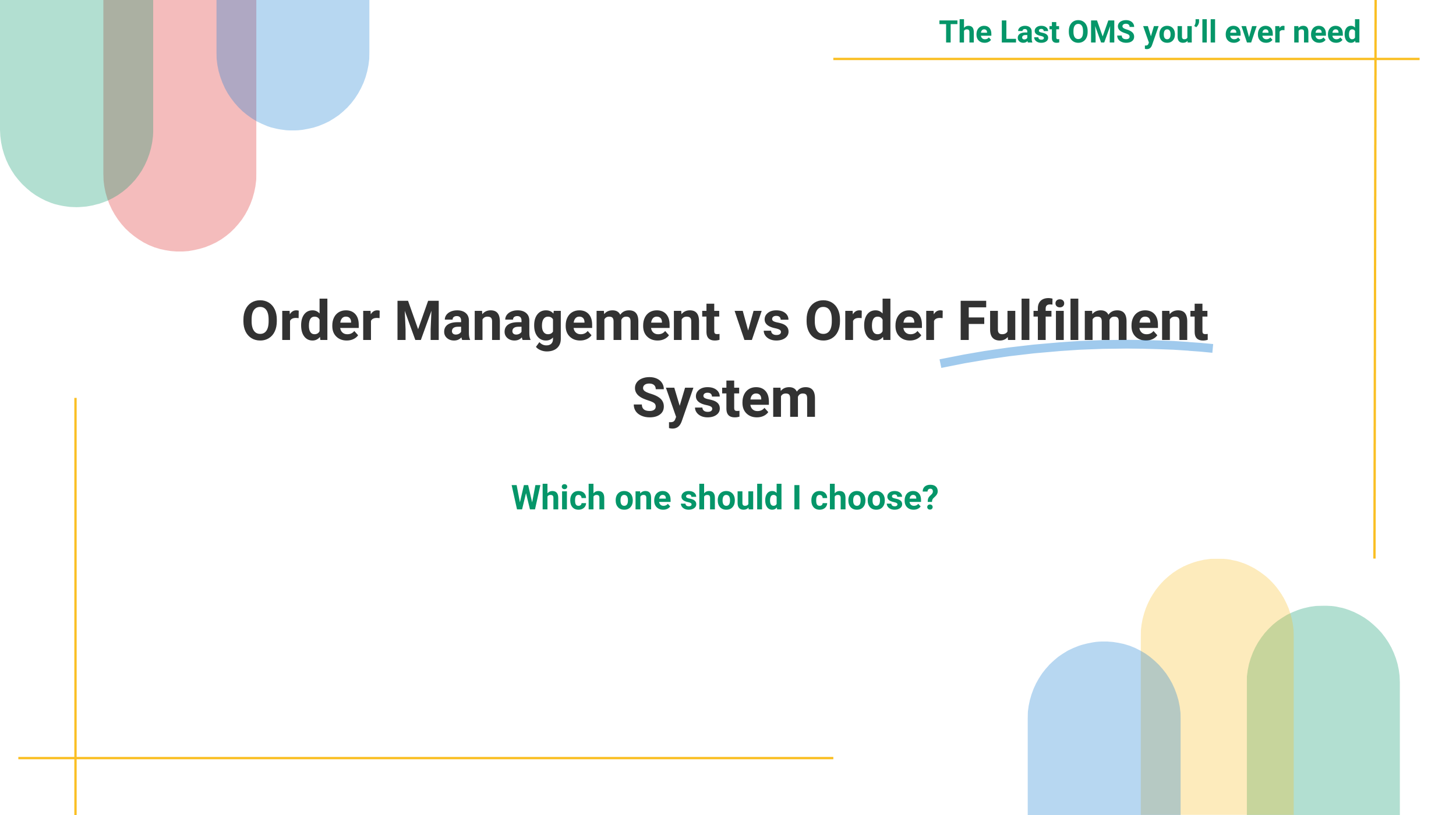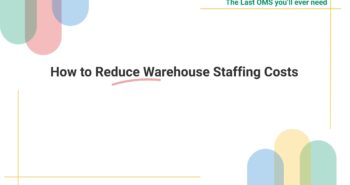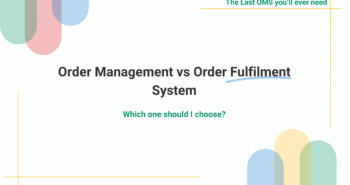Which System Does Your Business Really Need?
As your eCommerce or retail operation scales, you’ll inevitably face a critical technology decision: should you invest in an Order Management System (OMS) or an Order Fulfilment System (OFS)? While these terms are often used interchangeably, they serve distinctly different purposes and choosing the wrong one can create bottlenecks that stifle growth.
Understanding the fundamental differences between these systems—and when each excels—is crucial for operations leaders planning their next technology investment.
Order Management Systems: The Strategic Command Centre
An Order Management System functions as the central nervous system for your entire order lifecycle. It captures orders from multiple sales channels, manages inventory visibility, and orchestrates the flow of information between various business systems.
Core Capabilities:
- Multi-channel order capture and consolidation
- Real-time inventory visibility across locations
- Order routing and allocation logic
- Integration with ERP, CRM, and finance systems
- Customer communication and order tracking
- Returns and refund processing
Key Advantages: An OMS excels in providing unified visibility across your entire operation. For businesses selling through multiple channels—website, marketplaces, retail partners, or physical stores—an OMS prevents overselling and ensures consistent customer experience. The system’s strength lies in its ability to make intelligent decisions about where orders should be fulfilled based on inventory levels, customer location, and business rules.
Limitations: While powerful for order orchestration, most standalone OMS platforms have limited physical fulfilment capabilities. They can decide where an order should be fulfilled but often lack the warehouse management features needed to optimise picking, packing, and shipping processes.
Order Fulfilment Systems: The Operational Powerhouse
Order Fulfilment Systems focus on the physical execution of getting products from warehouse to customer. These systems excel in warehouse operations, picking optimisation, carrier integration, and shipping management.
Core Capabilities:
- Warehouse management and picking optimisation
- Carrier rate shopping and label generation
- Inventory tracking and cycle counting
- Returns processing and restocking
- Shipping analytics and reporting
- Integration with 3PL providers
Key Advantages: OFS platforms are unmatched when it comes to operational efficiency. They can dramatically reduce pick times, minimise shipping costs through intelligent carrier selection, and provide detailed visibility into warehouse performance. For businesses with high order volumes or complex fulfilment requirements, an OFS can deliver significant cost savings and performance improvements.
Limitations: Traditional fulfilment systems often struggle with multi-channel complexity. They’re typically designed around single-location operations and may lack the sophisticated order routing logic needed for complex retail operations.
Choosing the Right System: Business Scenarios
Scenario 1: High-Volume Single Location eCommerce Consider a rapidly growing D2C brand processing 1,000+ orders daily from a single fulfilment centre. Here, an Order Fulfilment System makes sense. The business needs to optimise picking routes, manage carrier relationships, and scale operational efficiency. The complexity lies in warehouse operations rather than order routing.
Integration requirements include connecting to your eCommerce platform, accounting system, and customer service tools. The OFS should handle inventory updates back to your sales channels and provide tracking information for customer communications.
Scenario 2: Multi-Location Retailer with Own Warehouses Now consider a retailer with physical stores and multiple distribution centres, selling through their website, marketplaces, and wholesale channels. This business needs sophisticated order routing—deciding whether to fulfil from the nearest store, regional warehouse, or vendor. An Order Management System becomes essential for managing this complexity.
Integration requirements expand significantly: connecting multiple POS systems, various sales channels, ERP systems, and potentially multiple warehouse management systems. The OMS must provide real-time inventory visibility and intelligent allocation logic.
The Modern Solution: Unified Order Management Platforms
Today’s most successful SME and mid-market businesses are discovering that the traditional OMS vs OFS choice creates a false dilemma. The optimal solution combines both capabilities in a unified platform that can manage the entire order-to-delivery process.
This is precisely where Modulus365 excels. Rather than forcing businesses to choose between order orchestration and fulfilment efficiency, Modulus365 delivers both capabilities in a single, integrated platform.
How Modulus365 Bridges the Gap:
The platform combines sophisticated order management with powerful fulfilment capabilities. It captures orders from multiple channels, makes intelligent routing decisions, and then optimises the physical fulfilment process—all within one system.
For our single-location eCommerce scenario, Modulus365 provides the operational efficiency of a dedicated OFS while adding multi-channel capability for future growth. The business gets optimised picking, intelligent carrier selection, and automated inventory updates across all sales channels.
For the multi-location retailer, Modulus365 delivers enterprise-grade order routing with the flexibility to fulfil from stores, warehouses, or drop-ship vendors. The platform’s extensive integration capabilities connect with existing ERP systems, finance platforms, and major retail partners seamlessly.
Key Integration Advantages: Modulus365’s strength lies in its comprehensive integration ecosystem. The platform connects with major ERP systems (SAP, NetSuite, Dynamics), finance platforms (Sage, Xero, QuickBooks), carriers, and retail partners. This eliminates the complexity of managing multiple point solutions and ensures data flows seamlessly across your entire operation.






